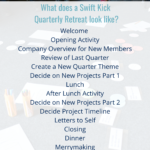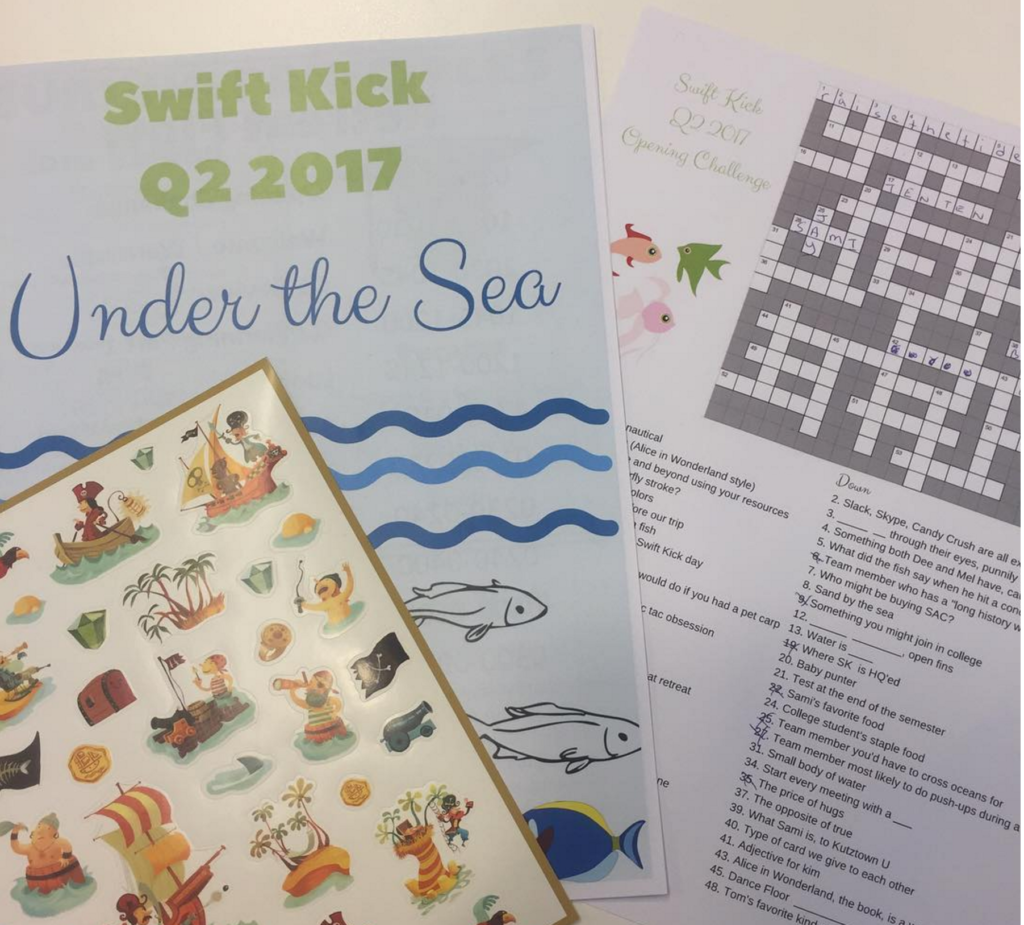When you hear the word retreat, what comes to mind?
For me, retreat means: bonding, connecting, team building, goal setting, reflection, fun for all, and taking steps forward.
Looking at that list of words and planning my first retreat sounded scary. Do I know my team enough to make sure the retreat is fun, helps us move forward, helps us to bond and connect, and is effective in setting goals for our next quarter? A few weeks ago, I was not sure. The two retreats I have been a part of have been so much fun and really were successful, so I did not know if I was up to the challenge. Now that I have planned my first retreat, I can honestly say I am so excited to see how it unfolds.
As you all know, I am an actor, but I have had stage management experience. As a stage manager, you run the show, make sure everything goes smoothly and that everyone stays safe and happy throughout the run of the show. Retreat planning is similar to stage managing in many ways. Once I made that connection, I knew I would be great at planning a retreat.
Here are my 3 hints to planning a successful retreat for your team:
-
Keep the Company Culture
At Swift Kick, we are all extremely fun-loving, adventurous people. But we all have different ideas of what is fun. For example, Melissa and Tom think running a marathon is fun, while Sabina and I would rather go whiskey tasting. How do you take a full team and make sure everyone is represented during company bonding?
Did you know? Companies with high morale perform 20% better.
During my time at Swift Kick, I have started to get to know my colleagues better as people. So when planning a retreat, it is important to make sure all parties are able to and could potentially enjoy whatever you are working on. As a stage manager, you are also dealing with many different personalities on the stage and off. In order to run a successful show, you have to keep everyone in the room on the same page: getting the show done. As a retreat planner, you have the same job: keeping the “show” moving.
-
Don’t Lose Sight of the Goals
Yes, retreats are meant to be fun, but the fun can’t run the whole event. During our retreats, the fun is scattered throughout the day and in between the work. The goal is to plan for next quarter and make some new memories and connections along the way! As a stage manager, you use many different tactics to get to your objective. For example, they ma have a talk with the whole team about expectations to make sure the production runs well. As a retreat planner, you do the same thing: you set expectations, so the day runs smoothly.
-
Create a schedule and a plan, but be prepared to throw that plan out.
For the retreat, I created a schedule for the day with time expectations and what needs to get done in that amount of time. As a stage manager, you do the same thing by sending your actors and crew an hour by hour schedule of what is going to get done that day. But as we all know, we can plan and plan, but things happen. Some things need to be discussed or worked on for longer, throwing the schedule off. As a stage manager and retreat planner, you need to know your schedule inside and out to be able to change it on a dime and still make sure the goal is being achieved. To make sure this happens, you need to stay calm and read the room. Be assertive if a topic needs to be changed or be flexible if it is important for the goal to finish the conversation, and maybe skip or shorten another section of the day.
Planning any event for your company can be stressful, but if you make sure everyone has a good time, keep goals in mind, and create a detailed but flexible schedule for the day, your event will run smoothly. Have no fear, and plan away.
I will report back after the retreat to explain how the day went and anything I learned for next time!




